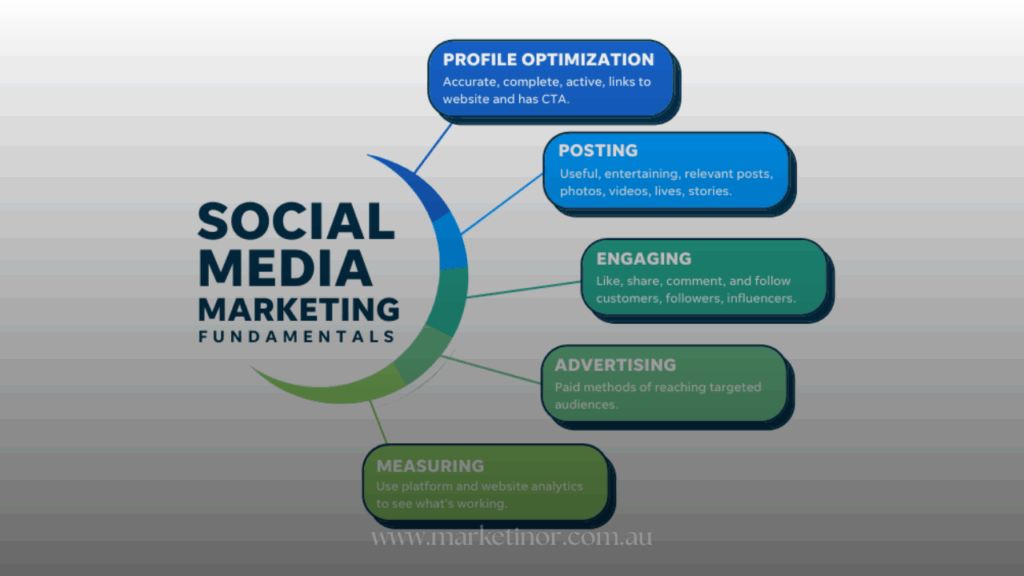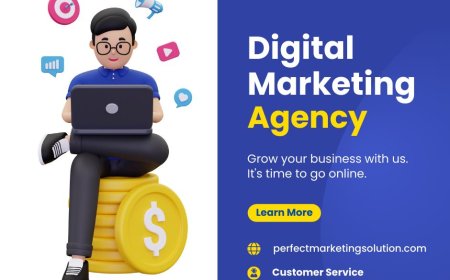The Difference Between Copywriting and Content Marketing Services
Learn how content marketing services differ from traditional copywriting, and why strategy, consistency, and intent matter for long-term growth.

The terms "copywriting" and "content marketing" are often used interchangeablyespecially in the world of digital communication. But while both involve crafting written material for businesses, their goals, strategies, and impacts are fundamentally different. Understanding this distinction is essential for any brand looking to build visibility, nurture leads, and grow organically.
In this blog, well unpack what separates traditional copywriting from modern content marketing services and explain how the latter adds a deeper, more strategic layer to your digital efforts.
What Is Copywriting?
Copywriting is the art of using words to persuade. Whether its a call-to-action on a landing page, a punchy product description, or a Google ad, the goal of copywriting is to compel immediate action.
The best copywriters specialize in brevity and impact. Their job is to grab attention, spark emotion, and lead the reader to convertbuy, subscribe, click, or inquire. Common examples of copywriting include:
-
Sales pages
-
Product descriptions
-
Digital ads (Facebook, Google, Instagram)
-
Direct email campaigns
-
Landing page headlines
-
Promotional banners
Copywriting is transactional and highly conversion-driven. It's measured by short-term metrics like click-through rates (CTR), conversion rates, and immediate sales.
What Are Content Marketing Services?
Content marketing, on the other hand, focuses on long-term engagement. Its about building relationships with potential customers by delivering useful, educational, and valuable content over time. Content marketing services include planning, creating, distributing, and optimizing content across multiple touchpointsnot just for clicks, but for trust and authority.
Here are common formats included in content marketing services:
-
Blog posts and articles
-
Whitepapers and eBooks
-
Case studies and success stories
-
Email newsletters
-
How-to guides and tutorials
-
Educational videos and infographics
-
Pillar pages and topic clusters for SEO
While copywriting is often about selling, content marketing is about serving. Its less pushy and more helpfuldesigned to answer questions, solve problems, and guide readers through the buyers journey.
Key Differences at a Glance
Lets clarify the contrast by comparing the two side by side:
| Aspect | Copywriting | Content Marketing Services |
|---|---|---|
| Primary Goal | Immediate conversion | Long-term engagement and brand trust |
| Tone | Persuasive, urgent, direct | Informative, conversational, valuable |
| Content Type | Sales pages, ads, product promos | Blogs, whitepapers, videos, guides |
| Duration of Impact | Short-term (campaign-based) | Long-term (compounding over time) |
| Measurement | CTR, leads, purchases | Traffic growth, engagement, lead nurturing |
| Strategy Involved | Message-focused | Audience, SEO, funnel, and content planning |
Why Businesses Often Confuse the Two
The confusion often arises because both disciplines use words, are used in digital campaigns, and sometimes overlap in formats (like email). But intent is the defining difference.
Lets take an example. A landing page headline that says, Buy Now, Limited Stock Available! is pure copywritingits only job is to drive action. In contrast, a blog titled 5 Ways to Choose the Right Software for Your Business is content marketingits designed to inform, rank on search engines, and build trust with potential buyers.
Many brands start with copywriting because its fast and results-driven. But once they hit a plateau, they realize they need content marketing services to generate consistent traffic, improve SEO, and nurture prospects who arent ready to buy immediately.
The Strategic Role of Content Marketing Services
Heres where content marketing services truly shinethey dont just write content, they build a system. A good content marketing team doesn't just ask, What should we write this week? Instead, they ask:
-
What questions are our target customers asking?
-
Which keywords are they searching?
-
Where are they in their buying journey?
-
How do we guide them from awareness to decision?
This requires keyword research, SEO alignment, editorial calendars, internal linking strategies, performance analysis, and often CRM integration. You're not just producing contentyou're crafting a strategic content ecosystem designed to convert over time.
This is the value of content marketing services. They align every piece of content to a business goal, whether thats ranking on Google, building email lists, or educating your sales leads.
Can You Have One Without the Other?
Yesbut it depends on your goals.
If youre launching a one-time promotion or need an ad for a product launch, copywriting alone might be enough. But if your goal is to drive sustained inbound traffic, increase visibility, or build a strong digital footprint, youll need a long-term content strategy.
Most successful digital brands today integrate both. A blog post (content marketing) might bring someone to your site, but a well-written landing page (copywriting) converts them into a customer. Both skills complement each other, and when combined effectively, they can significantly improve marketing ROI.
Real-World Example: Copywriting vs. Content Marketing in Action
Imagine a business selling organic skincare products.
A copywriter might write a compelling Facebook ad that says: Try Our 100% Organic Vitamin C Serum 20% Off Today!
Meanwhile, a content marketer might publish a blog post titled: Why Natural Skincare Matters: 7 Ingredients to Avoid in Your Beauty Routine
The ad drives quick clicks and conversions. The blog builds long-term organic traffic, educates the reader, and establishes brand credibility. Someone who reads the blog may not purchase immediatelybut theyve entered the funnel, and future content (like emails, case studies, or social media posts) can nurture them toward a sale.
This layered approach is what content marketing services specialize in: turning casual readers into loyal customers over time.
Conclusion
In todays competitive digital landscape, words alone arent enoughyou need the right message, at the right time, for the right audience. While copywriting handles short-term persuasion, content marketing services create a long-term growth engine fueled by trust, relevance, and consistency.
Understanding the difference allows businesses to invest wisely. Use copywriting to optimize your sales messaging and promotional efforts. Use content marketing to attract, educate, and convert over time.
Together, theyre not just complementarytheyre essential.






































